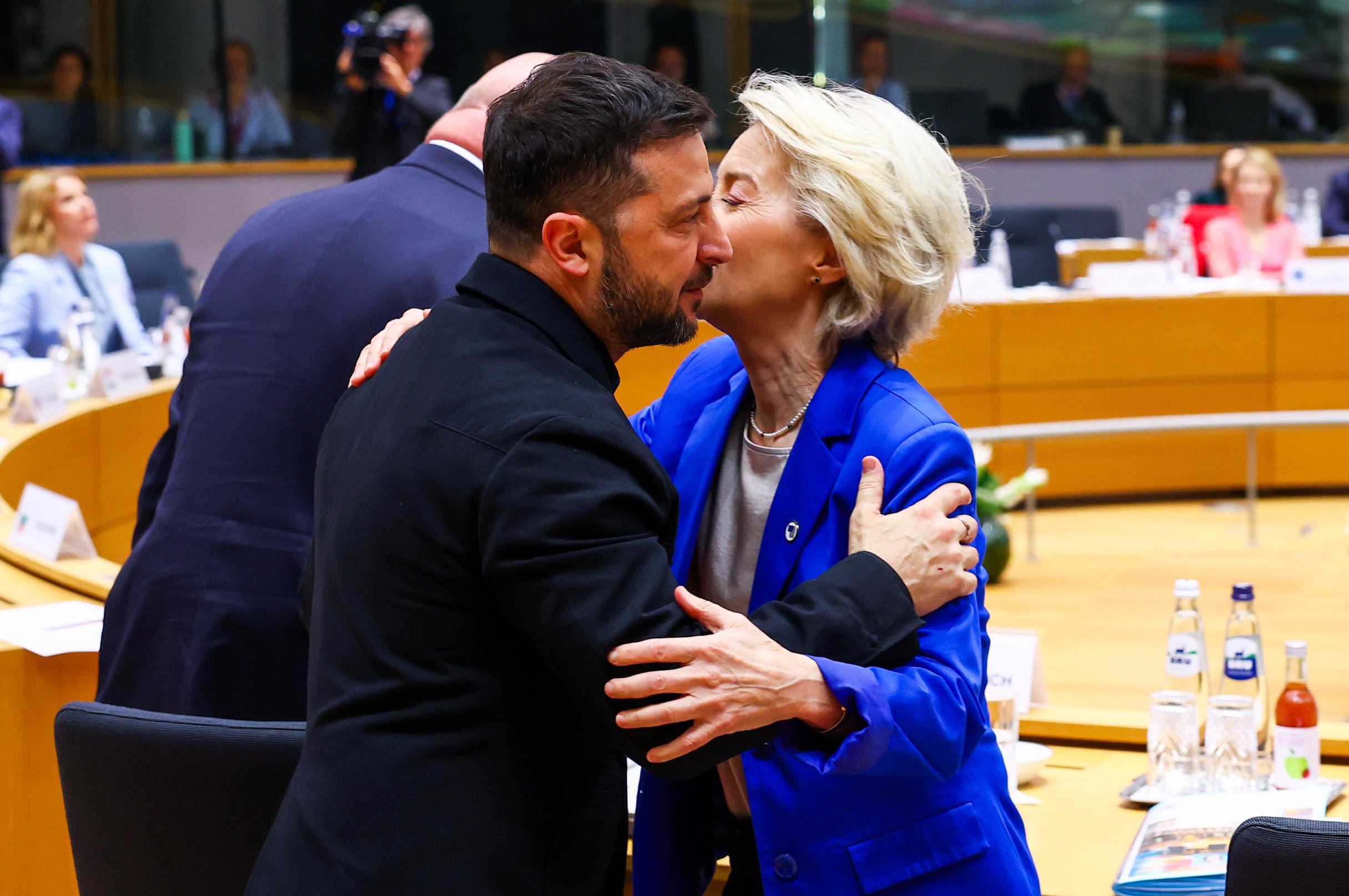EU leaders have given the Commission the mandate to advance in the use of frozen Russian assets worth up to 185,000 million. Timidly and with a very diluted final text. But it represents a step for the European Commission to seek ways to use that liquidity in financing Ukraine, so that European taxpayers do not have to bear that cost once Donald Trump and the United States are no longer involved. European Commission President Ursula von der Leyen was clear in the final press conference of the European Council held this Thursday in Brussels: "The focus is on Russian assets and the options are related to Russian assets."
The text specifically states that "the European Council invites the Commission to present, as soon as possible, financial support options based on an assessment of Ukraine's financing needs, and urges the Commission and the Council to continue advancing in this work, so that the European Council can address this issue again at its next meeting," the document states. It adds that "Russian assets must remain frozen until Russia ceases its war of aggression against Ukraine and compensates it for the damages caused by such war." Von der Leyen's clarification, therefore, was necessary, as is the way in which the operation is intended to be carried out.
In Euroclear, a financial securities clearing and settlement company, there is already 175,000 million from Russia in cash, a figure that the Commission estimates will reach 185,000 million in the coming years. The Commission President explained a few weeks ago that a sort of credit would be built from that liquidity, with the participation of the European Central Bank (ECB), referred to as a reconstruction loan. The money should also be repaid by Ukraine once Russia assumes the reconstruction costs of the country, and therefore, as stated by the European Commission, there would be no "confiscation." However, not everyone in Brussels shares the same view, as the country's Prime Minister, Bart de Wever, believes it is. And he fears that Russia will retaliate against Belgium.
"If we want to give them to Ukraine, we have to do it all together. Otherwise, Russian retaliation could affect only Belgium. That is not very reasonable. We are a small country and the retaliation could be very harsh. They could confiscate all kinds of funds from Western banks in Russia, confiscate European-owned companies in Russia," he warned this morning upon arriving at the summit of heads of state and government held in Brussels.
"That seems to me the first step if an important decision is to be made. This has never been done," he insisted before recalling something he has been emphasizing for weeks: that he wants "risk mutualization." That is, all capitals share and assume responsibility for the operation.
All of this is not yet defined, far from it. And the conclusions text, signed by 26 countries, as Hungary has not been counting for some time, is also deliberately ambiguous due to all the existing pressures. Also from the aforementioned ECB. Therefore, a very common solution in European negotiations has been chosen to be able to move forward. Saying something almost without saying it. The next step will be for the Commission to actually develop its proposal. This will have to happen in the coming weeks, and at the next summit of presidents, which will take place before the end of the year, the Commission will present it. A round trip journey to try to secure political support. It has succeeded to some extent, although some were expecting more.
Subsequently, if the leaders definitively approve the Commission's proposal, the EU will finalize the details in the first months of 2026 because its goal is for Ukraine to start receiving the loan in the second quarter of the year. In April, therefore.
"It is almost a stroke of genius by those who came up with it, because there are frozen Russian assets already in Europe. The idea is that they serve as a kind of credit advance, so we can transfer it to Ukraine without Europeans having to pay it all. It is Russia that has destroyed much of the country, and therefore, it is natural for Russia to pay for the weapons that Ukraine uses to defend itself," said Danish Prime Minister Mette Frederiksen very enthusiastically this morning. Others, like Luxembourg's Prime Minister, Luc Frieden, insisted that it is necessary to ensure that it is "legally sound." And what everyone agrees on, even De Wever, is that they do not want Ukraine's defense to be funded by national budgets.
"If you look at the IMF [International Monetary Fund] figures, what is evident is that they will need between 114,000 and 160,000 million euros in the next three years," diplomatic sources warned yesterday. A lot of money, although in Brussels, there is no question that Ukraine must be helped because not doing so would have "worse consequences": the war would reach the heart of Europe.
